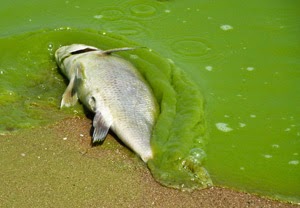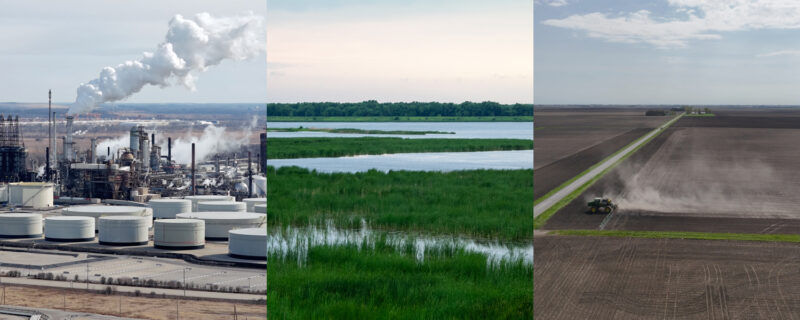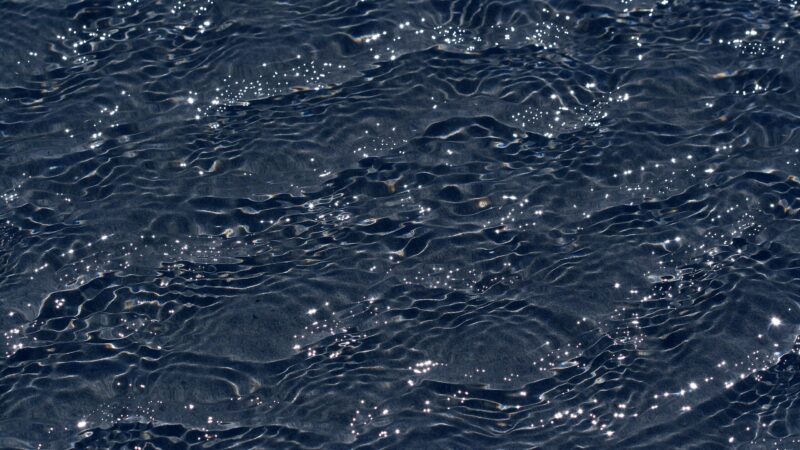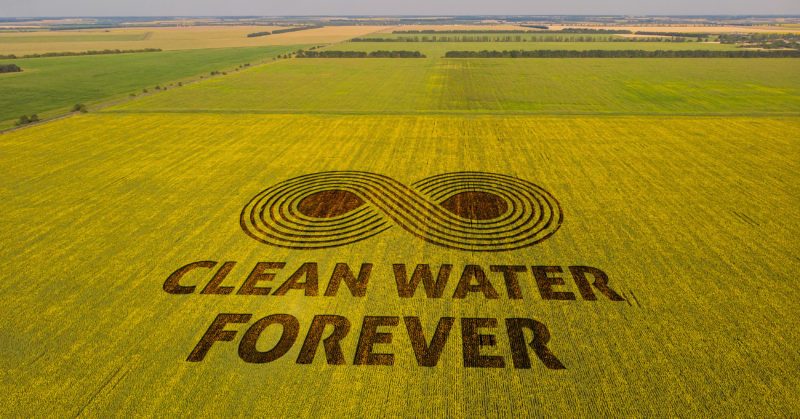Healthy Rivers Need Clean Water
Nutrients are good, right? Not always. Too much of a good thing can be very bad for people, fish, and clean water. The rivers and lakes of Illinois should have clean water flowing through them.
Problem: Nutrient Pollution & Algal Blooms
 Too much phosphorus and nitrogen in water can be very harmful to aquatic life and to people. Phosphorus and nitrogen pollutants fuel the growth of algae, which at excessive levels leaves us with the green, gunk-infested waters that robs water of oxygen, making life difficult for fish and other aquatic creatures. While the Gulf of Mexico is over 600 miles south of Illinois, we are very connected to it via our rivers and streams. Most of Illinois’ waterways flow into the Mississippi River, which in turn flows to the Gulf of Mexico. As such, water pollution that originates in Illinois is a major contributor to the Gulf of Mexico Dead Zone, a vast area that forms off the coast of Louisiana each summer that is so depleted of oxygen that fish and other water species cannot breathe. Where does all this nitrogen and phosphorus pollution come from? In Illinois, 80% of nitrogen comes from farms. The sources for phosphorus are almost equally split between sewage treatment plants and corn and soybean farms.
Too much phosphorus and nitrogen in water can be very harmful to aquatic life and to people. Phosphorus and nitrogen pollutants fuel the growth of algae, which at excessive levels leaves us with the green, gunk-infested waters that robs water of oxygen, making life difficult for fish and other aquatic creatures. While the Gulf of Mexico is over 600 miles south of Illinois, we are very connected to it via our rivers and streams. Most of Illinois’ waterways flow into the Mississippi River, which in turn flows to the Gulf of Mexico. As such, water pollution that originates in Illinois is a major contributor to the Gulf of Mexico Dead Zone, a vast area that forms off the coast of Louisiana each summer that is so depleted of oxygen that fish and other water species cannot breathe. Where does all this nitrogen and phosphorus pollution come from? In Illinois, 80% of nitrogen comes from farms. The sources for phosphorus are almost equally split between sewage treatment plants and corn and soybean farms.
Solution: Reducing Nutrient Pollution
Prairie Rivers Network works in collaboration with our partners to achieve reductions in nitrogen and phosphorus pollution through enhanced sewage treatment, habitat enhancement, and improved farming practices. These approaches can go a long way in reducing harmful pollutants and cleaning up algae both at home and in downstream waters. Key actions that we are working on include:
- Develop broad coalition of stakeholders to advance policies to reduce nutrient pollution
- Educate the public and local leaders about nutrient pollution as a drinking water and public health problem
- Leverage Illinois Nutrient Loss Reduction Strategy to spotlight industrial agriculture’s role in polluting streams and rivers, and to find solutions to reduce nutrient loadings in our waters
- Develop and distribute myth busting information on agriculture in Illinois, targeting key NGO staff, journalists, and government officials; develop and implement a rapid response communications team to challenge the biased media narrative surrounding farming in America
- Promote a recognition that lax pollution standards unwisely subsidize destructive practices, undercut healthier farming practices, and impose high costs on public water suppliers and taxpayers
- Promote a nature-respecting view of responsible land ownership











